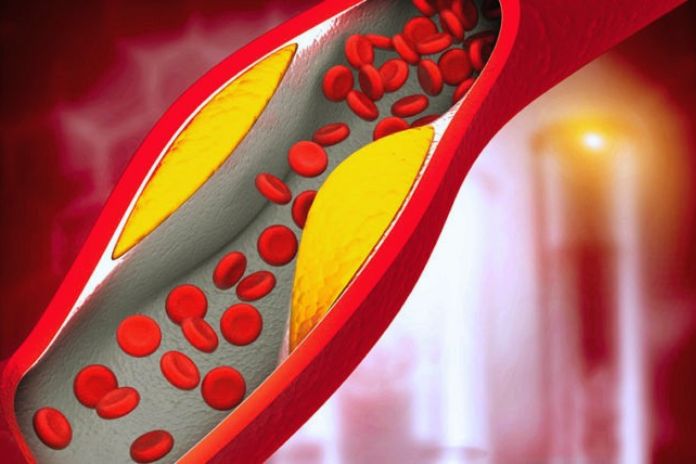LDL cholesterol (known as bad) and triglycerides can become villains for our health if they reach very high levels.
This is because, if they accumulate in our arteries, they can reduce blood flow or even cause these vessels to clog, resulting in serious problems such as stroke, heart failure, and even heart attack.
And contrary to what many may think, dyslipidemia (change in blood fat levels) is not a symptom restricted to overweight people. It can appear even in those who are okay with the scales, in children, or simply due to trends in genetics.
To help you protect yourself from the risks of this problem, we have listed some tips on fighting high cholesterol in this article.
High Cholesterol Symptoms
High cholesterol has no symptoms; signs such as chest pain, weakness, fatigue, constipation, nausea, and headaches can indicate cardiovascular problems.
In addition, its emergence may be linked to genetic factors. Therefore, having a checkup at least once a year is essential, especially if you have dyslipidemia in your family.
Six Tips To Fight High Cholesterol
In addition to genetic factors, some aspects related to lifestyle habits also play an essential role in raising cholesterol levels. And it is over them that we can have greater control.
Issues related to diet, a sedentary lifestyle, and smoking can contribute significantly to high total cholesterol levels, LDL fraction (lousy cholesterol), and triglycerides.
Therefore, the main measures to combat high cholesterol are related to a more active and healthy life, such as:
Eat Properly
Decrease the consumption of saturated fats, trans and red meat, preferring the so-called “good fats,” such as Omega-3, olive oil, and nuts. Also, reinforce the consumption of fibers, vegetables, and greens, in addition to giving preference to whole foods.
Moderate Alcohol Consumption
Give preference to red wine (a glass a day) to benefit from the anticoagulant effect of resveratrol and the antioxidant action of flavonoids, as they are believed to be beneficial to the heart.
Stop Smoking
In addition to smoking reducing the level of good cholesterol (HDL) and raising the bad (LDL), it also impairs the elasticity of the arteries, favoring the occurrence of obstructions.
Watch Your Weight
Although not a mandatory characteristic of those with high cholesterol, being overweight is a risk factor for developing the disease. According to the World Health Organization, the ideal abdominal measurement for men is up to 90 cm and, for women, up to 80 cm. Above that, the risks already rise.
Do Physical Activities Regularly
Aerobic exercises – such as walking, running, and cycling – are the most recommended.
Beware Of Stress
In addition to increasing heart rate and blood pressure, stress increases terrible cholesterol. So try to do relaxing activities.
Foods That Help Fight High Cholesterol
One of the most efficient ways to combat high cholesterol is to combine a healthy and balanced diet with an exercise routine.
And anyone who thinks that the menu indicates combat high cholesterol needs to be very restricted is wrong. It is necessary to avoid certain food groups, such as those rich in sugars and saturated, trans, and animal fats, giving preference to cooked or steamed dishes.
It is also recommended to avoid ready-made sauces and seasonings due to the number of preservatives and other chemicals these foods contain. It will only do good to put together a nice salad plate if you cover it with this type of industrialized sauce later. Prefer vinegar or just a drizzle of olive oil.
So, to increase the level of good cholesterol and reduce the bad, include in your diet:
- White meat: fish, chicken, and turkey.
- Fruits and vegetables: preferably raw and unpeeled.
- Whole meal foods are fiber-rich: whole meal bread, oatmeal, and almonds.
- Legumes: beans, soybeans, chickpeas, and lentils.
- Low-fat dairy products: skimmed milk and natural yogurts.
- Vegetable fats: olive oils, nuts, and avocado.
What Can High Cholesterol Cause?
As already mentioned, high cholesterol levels can cause blood vessels to clog, increasing the risk of developing cardiovascular diseases, including:
- Atherosclerosis: Obstruction of blood flow in the arteries.
- Coronary artery disease: blockage of the arteries that supply blood to the heart.
- Arterial hypertension: fatty plaques can cause blood to circulate with more significant pressure in the arteries. In severe cases, leading to episodes of stroke, kidney failure, and even vision problems.
- Infarction: absence of blood in blood vessels due to obstruction caused by excess fat, which can lead to death.
Also Read: Seven Foods For A Healthier Heart

